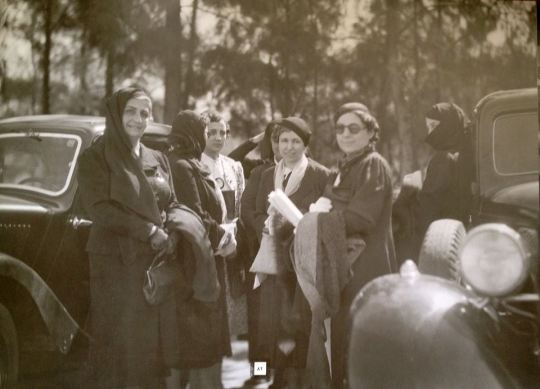#workshop colony
Explore tagged Tumblr posts
Text

meebkin!!!

41 notes
·
View notes
Text
AHHHH IT THE THEYS.....THEM!!!! THANKS THUNDER

@t00nyah ur guys
41 notes
·
View notes
Note
So... Is there a contingency plan in case all 3 historians die at once? Some kind of master reference document for the writing system that is easy for a novice to figure out? Or are they just SOL?
Also staring at you with my big ol' green eyes to tell me how their writing system works.
-@troutfur
You've correctly identified a major weakness of the system, because there IS no contingency plan. This is actually one of the reasons why Swamp's Shadow gives the Blessing of the Gods (9 lives) to their Historian-- it makes them VERY difficult to kill outright. Many Historians also exclusively travel with trusted bodyguards, usually their fhaa or mafhaa.
History and Historians are sacred to Felkeba, so it's believed that xe will take reasonable measures to protect the Historians from something like this happening (ie, some sort of freak accident).
However... the colonies wouldn't be completely boned if this happened. They would have two options for trying to teach a new Historian how to read.
Mostly unknown to the living is that the majority of Historians end up as roaming ghosts, denied their afterlife at Shossuow's side. Felkeba is downright draconian about xyr expectations for xyr chosen Heralds. If those historical records come to harm and there is absolutely ANY way that it possibly could have been prevented, even if no reasonable person ever would have expected the circumstances, YOU are liable. If you aren't able to fix or replace them 100% perfectly, you will NOT go to tiger heaven. If you copy down something incorrectly, even by accident, even something RIDICULOUSLY small, it is YOUR fault. Even more so if the other Historians copy it down. Likewise, if you copy something from another Historian that's wrong, maliciously or accidentally? sorry, you're a ghost now.
Communing with the dead is a grave sin because only those who have been dishonorable and/or heralds who have failed the gods they serve (and tigers buried dishonorably) become ghosts. To receive guidance from the evil/dishonorable dead instead of from the gods is not only stupid, it's blasphemy. Colony tigers don't even commune with their righteous ancestors! However, a not insignificant portion of these ghost Historians-- especially the ones who were generally good but made small mistakes that weren't reasonably their fault-- believe that they are the contingency plan. If something ever were to happen, the newly selected Historians could commit the grave sin of witchcraft to learn how to read and write from the ghosts of dead Historians. (Many of them also believe that they're around to keep even MORE accurate records than the living can, so that Felkeba can have even things that happen in secret be remembered.)
As for the other option... there's definitely been at least one Historian who has become a Betrayer, and that's all it takes to have more or less the colony writing system kicking around with some homesteaders somewhere. If someone was truly desperate (and willing to trust a betrayer), they could probably find at least ONE living tiger on the island who could teach them to read something close enough to let the rest of the historical records be deciphered.
As for the writing system itself... below the cut! FOR HISTORIAN EYES ONLY!
The writing system of the Colonies actually preserves a more archaic version of their spoken language, which means that new Historians are basically learning how to read and write middle English instead of modern English. For example, a faithful Historian would probably transcribe the written names of the gods from the colony alphabet into the Latin alphabet as "Aashekorrl, Shyashooao, Oopash, Fyyrrioo, Wafaok, Felkepa, Warraparrwa, Lalshi, and Misha." (These are the sounds I transcribe later in this post.)
I may or may not condense these two into one system in the future and make a proper "Tigermew"; as you in particular have probably noticed, I'm using a pidgin of clanmew, modified clanmew, and original words that are based more on the sounds that tigers make. This is mostly due to the stages of development of the project; when I came up with the names of the gods, it WAS mostly a Warriors project about domestic cats, so I heavily borrowed Clanmew. It's only recently that I'm thinking about transitioning into an original conlang moreso inspired by Clanmew.
Right now the writing system is subject to change, but it's inspired by the Batak script and Hebrew. I've drawn up the names of the gods; my handwriting would be considered semi-legible by Historian standards (and I don't draw my letters consistently). I'd like to refine some of these shapes more and work out formal rules for how vowels get "attached" to consonants. I also don't currently have a "silent consonant" like the Hebrew ℵ for vowel-only syllables. Some of my letters are too similar to one another, and I can't decide if the letters should be more jagged (as if drawn by claws dipped in ink) or more flowing (as if drawn with a brush pen to preserve the parchment).

Inspired by this ask, I'm probably going to do more work developing the sounds and grammatical structures of the language before I return to the writing system some more. I already have some ideas (it's a little more "prefix/suffix/root" based than Clanmew is, for example) but I'm not the most acquainted with conlanging, so I'd be open to it if anyone would like to help!
#pulau harimau/the island#colony culture#creative writing#xenomoggy#ask#colony writing system#conlang#tigermew#tiger… roar? idk i’m workshopping the name
10 notes
·
View notes
Note
Could I request the fams Colony Killer & Assassin Bug? :3 (if you feel up to it, you could add their Fiona third, Archer Bug)






assassin bug, colony killer, and archer bug scries!
genes+colors in alt text!
#flight rising#scrying workshop#fr scries#scrying every familiar#fr sandsurge#fr fae#fr everlux#fr assassin bug#fr colony killer#fr archer bug
8 notes
·
View notes
Text
i cant find it anymore but this one post i read about zam caring about lifesteal for lifesteals sake while nobody else really does that inspired an au for me lol
#mine.txt#right as i was about to reblog it the page died#the joys (sarcastic) of having shit college internet#its also inspired by the many novels throughout history that present themselves as love stories#but are actually revolutionary/anti colonialism/nationalistic inntrospection pieces in disguise#im still workshopping it but its basically a neo-noir au where zams gf which is actually a stand in for lifesteal mysteriously dies and#zam not believing that she killed herself decides to investigate what happened himself#and along the way gets some other ppl to help him too#planet is also included in this cause his nosey ass is perfect for the story#its also princetech but im still trying to decide if im gonna base it on their ks dynamic or their ls dynamic or some kind of mixture#probs mixture ngl#also trying to decide if i should include pentar and jumper in the team of ppl wholl help zam out or not#also trying to decide if i should make it cyberpunk as a funny haha this is whats in store for zams future if he really meant it when he#said that hell keep playing on ls even when nobody else does#or if should just make it modern to keep it more grounded#so yeah a Lot of workshopping still
12 notes
·
View notes
Text
(In which I attempt to read more essential socialist, anarchist and other vital theory).
I ended up *racing* through’ “Fields, Factories and Workshops Tomorrow”, Pyotr Krotopkin’s 1898 book substantially revised in 1911 that’s frequently cited as one of the founding texts of anarchosocialism.
Honestly, this is terrifyingly brilliant and terrifyingly apt well over a century since it was written (and nearly a century since it was substantially revised).
You will need to have an interest in the minutiae of agricultural and industrial production in the 1910s across the globe, though focused in Western Europe and the US, to enjoy the early chapters of the book. Luckily for me, I'm a social historian so I found it genuinely fascinating, but I can imagine other readers without that particular SpIn potentially being a bit bored to tears by them.
The good news is that all of that can be meaningfully skipped over by the modern reader, should you not be interested in it - it largely exists to prove the author's credentials as an economist and that his theories for a rational anarchist society are based on hard and detailed economic knowledge rather than vague idealism, as that is always the charge thrown at those who dare to propose visionary ideas for societal and economic reform.
Krotopkin proposes a society where production and consumption are highly local and decentralised, though knowledge exchange, education, luxury goods and technical expertise remain international, and become freer than they were then and are now. Where education is long, broad, rational and practical; where everyone capable of it takes part in local food production and handicrafts as well as other forms of more intellectual and artistic work, and where individuals have a lot more autonomy over their lives than then or now.
His analysis of the destructive effects across all human endeavour of capitalism and the worship of capital is sharp, incisive, rational and unequivocal, though his small foray in the conclusion into picturing the spiritual effect of a world where one could be free of the choice between exploitation and exploiting is genuinely gut-punching to read. He did not picture the climate crisis; he hoped we would destroy capital long before the dominion of oil, but his concentration on the importance of preserving soil fertility and scientific sustainability feels terrifyingly prescient.
Where he falls down is his unexamined colonialist bias; his frequent references to "civilised nations" and several reference to Africans as "savages" are painfully grating. Bizarrely, he also makes approving references to education within the Black community in the US and actively refers at several points to economic colonialism being intensely oppressive. He was writing in an *intensely colonialist period and to me this reads as clumsy attempts to *begin* to reach towards anti-colonialism while utterly failing to examine the bias his life and education was steeped in. He is better on misogyny; despite writing about people as a whole with a somewhat patriarchal bent, he is scrupulous in noting the presence and capacities of women and girls in work and education.
#anarcho socialism#pyotr krotopkin#fields factories and workshops tomorrow#reading theory#environmentalism#anarchism#socialism#visionary work#cw colonialism
4 notes
·
View notes
Text

You do not need to be an expert on the histories and politics of the occupation of Palestine to join us and contribute. We're definitely not experts, and none of our membership has lived experience as a Palestinian person. But what we do know is that RAW comes from resistance to systems of oppression and the on-going impacts of settler colonialism and imperialism. What we do know is we must take a clear stance against genocide and deepen our practices of support for decolonization resistance movements everywhere, from Turtle Island to Palestine. What we do know is that solidarity is a commitment to paying attention, to learning, to collectivity, and to action in the struggle for justice, safety, sovereignty, and freedom. [x]
#Oct. 2023#RAW Taiko#Toronto#taiko#Raging Asian Womxn Taiko Drummers#workshop#Palestine#protest#Asian American#settler colonialism#imperialism#genocide
7 notes
·
View notes
Text
Art Gallery of Ballarat | Australia's Oldest Regional Art Gallery

Founded in 1884, the Art Gallery of Ballarat is Australia's oldest and largest regional art gallery. Located on Lydiard Street North, the gallery houses an extensive collection of Australian art, spanning from colonial times to contemporary works, and serves as a cultural hub in the heart of Ballarat.
Historical Significance
The gallery was established to enrich the cultural life of Ballarat, a city that flourished during the gold rush era. It has played a pivotal role in promoting Australian art and artists, contributing significantly to the nation's artistic heritage. The building itself, constructed between 1887 and 1890, is listed on the Victorian Heritage Register and showcases Renaissance Revival architecture.
Best Time to Visit
Open year-round, the gallery is an excellent destination regardless of the season. Special exhibitions and events are frequently held, so checking the gallery's schedule can enhance your visit. As of March 2025, the main gallery is temporarily closed for extensive building upgrades, set to reopen in early 2026. In the meantime, the gallery's Backspace Gallery at 43 Mair Street continues to host exhibitions celebrating local and early-career artists.
Activities
Art Exhibitions: Explore a vast collection of paintings, sculptures, and decorative arts.
Educational Programs: Participate in workshops, lectures, and guided tours.
Special Events: Attend exhibition openings and cultural events.
Gallery Shop: Purchase art-inspired gifts and souvenirs.
Conclusion
The Art Gallery of Ballarat stands as a testament to the city's rich cultural history. Its diverse collection and commitment to art education make it a cornerstone of Australia's artistic landscape.
#Art Gallery of Ballarat#Australian art#regional gallery#art exhibitions#cultural hub#Ballarat history#art education#workshops#guided tours#sculpture collection#painting exhibitions#contemporary art#colonial art#art events#gallery shop#art heritage#Ballarat culture#art lectures#artistic programs#gallery visits#art appreciation#historical gallery#art collections#Ballarat attractions#art museum#cultural experiences#art history#Australian artists#gallery events#art community
0 notes
Link
Great opportunity to get motivated by learning how to be a more inspired writer.
#Writers#writers on tumblr#writers and poets#writerscommunity#writers workshop#fiction#novel writing#lgbtq writing#ozarks#eureka springs#Harrie Farrow#Writers' Colony at Dairy Hollow
0 notes
Text
how much of roman'ce is getting sentimental and awkward about land contracts instead of doing /7+ kinds of love words about it?
0 notes
Text

auglurrrrrrrrrrrrrrrrr!!!!!
27 notes
·
View notes
Text
Modern Southeast Asia: Colonial Legacies, Lasting Diversities
Join the 2024 Summer Institute on "Modern Southeast Asia: Colonial Legacies, Lasting Diversities" at East-West Center, Honolulu (July 29-Aug 9). Open to college/university teachers. Apply by Mar 12.
The “Modern Southeast Asia: Colonial Legacies, Lasting Diversities” program, scheduled for July 29-August 9, 2024 at the East-West Center in Honolulu, is a two-week residential institute for college and university teachers. It aims to explore Southeast Asia’s historical and cultural diversity influenced by colonialism. The application, open until March 12, 2024, prioritizes humanities and social…

View On WordPress
0 notes
Text
The Sims 4 Businesses & Hobbies: A List of Small Business Ideas
With the recent announcement of the Businesses & Hobbies expansion pack, we'll be able to run small business on both residential lots or their 'community' lots.
On these lots, you'll be able to charge an entrance or hourly fee, sell items and encourage certain behaviours and actions.
I'm trying to create a list of ideas for different small businesses that it's possible to create, using different content from various other packs. Hopefully it will inspire you once we're able to use the pack!
I've tried to avoid any types of retail space/store, as that would make the list even longer! (Plus I'm not sure how they'll interact with Get to Work.) They're in no particular order, just as I thought of them.
Tattoo parlour
Laundrette
Woohoo playrooms
Table top/board game café
Garden maze
Science museum
Library
Gym
Spa
Yoga studio
Bowling alley
Sauna
Pool
Onsen
Massage therapist
Salon
Cinema
Karaoke bar
Comic book store
Gallery
Art studio
Pet café
Medium/psychic
Crystal workshop
Private gardens
Member's fishing lake
Lecture hall
Robotics workshop
Artist's studio
Petting zoo
Flower arranging school
Nudist colony
Photography studio
Rock climbing centre
Ice skating rink
Rollerskating rink
Nightclub
Bubble blower lounge
Thrift store
Movie studio tour
Soft play centre
Pet training/agility classes
Horse training paddock
Vineyard
Campground
Cooking classes
Food market
Convention centre
Content creation studio
Church
Arcade
747 notes
·
View notes
Text
Im remembering where I left off on my long term d&d campaign before we all realized our holiday seasonal schedules would make it incredibly difficult to play.
My players had made it to the dwarven city of my homebrew setting. And I had added on a detail from dwarf fortress to help enhance some of the weird culture they have. These are weird dwarves, after all. They have been grafting uranium into the skin for generations.
I added strange moods.
For those unfamiliar with dwarf fortress, you manage a colony of dwarves. You tell the dwarves what to do and they try to do it. You can micromanage just about everything. But every now and then a dwarf gets a "strange mood" or a "fey mood" (there's a few names for it in game). You can't stop this. When it happens the dwarf stops what they're doing, enters a trance like state, hijacks a workshop in the fortress, steals a bunch of materials, and crafts what is usually an incredibly valuable artifact.
So I described this to my players, as part of the city was being cordoned off due to a particularly troublesome strange mood. And a player responded with "so. Crafting heat. Got it."
And it killed a me a little. In a good way, of course. I had to stop and think about it for a minute before I could laugh but I did laugh.
Anyway, this is now the canonical way I think about it. The dwarves have a heat cycle, and it is not sexual in nature. It is for making cool and useless things. Like hats made of bone and rocks.
586 notes
·
View notes
Text













Moments from Palestine across generations and communities
(1) A Bedouin woman smiles in Jerusalem (1898-1914)
(2) Asma Aranki Holding a Child from Her Family at Their House, Birzeit (1948)
(3) Bedouin girls in Jericho (1918)
(4) An extended Palestinian family gathers in front of their house in the village of Beit Sahur, near Bethlehem (1918–35)
(5) From the Mount of Olives, a young woman looks out over eastern Jerusalem (1929)
(6) Ruth Raad, daughter of photographer Khalil Raad, in the traditional costume of Ramallah (1939)
(7) Standing in his neatly ironed shirt and shorts, George Sawabin poses for a studio photo (1942)
(8) Katingo Hanania Deeb, prepares to demonstrate in the 1936-1939 Arab Revolt -- which was a nationalist uprising by Palestinian Arabs against British colonial rule in relation to Palestinian independence and the land acquisition and pushout as a result of the mass Jewish immigration (1936)
(9) Young children walking home from school Beit Deqqo Village, the Occupied Palestinian West Bank, 1987
(10) Four young girls decorating vases in a ceramic workshop in Nablus (1920)
(11) A young Palestinian girl squints and smiles as she holds a jar on her head (1920-1950)
(12) The ancient craft of a Palestinian potter (1918-35)
(13) The mothers of Palestinian detainees' protest in Jerusalem (1987)
Source(s): The British Mandate Jerusalemites (BMJ) Photo Library, Palestinian Museum Digital Archives, The Jerusalem Story + Khalil Raad
Please support, share, cite, and (if financially able) fund these organizations and public storytellers for their rebellious histories and community work!
#decolonization#our world#our history is your history#people#free palestine#palestine#indigenous rights#art of making#and manifesting#history is not neutral#futurepast
4K notes
·
View notes
Text
🏜️ 200 Followers Gift : The StrangerTown neighborhood ! 🛸

🛰️ So many of you loved the photos of this neighborhood that I decided to share it with you. I called it the Aurora Military Base (in reference of the incident in 1897 that took place in Aurora, Texas)
This map is decorated but emptied of lots, in fact many of the houses used are not my own creations and the amount of custom content required to display my redecoration of them is far too large. However, I'll give you the links to the base lots that I used 🏠




CUSTOM CONTENT REQUIRED TNW Crop Circles recolored by me Seasonal Fields by @greatcheesecakepersona Lot View Farm Fields by @pixeldolly Giants FS13 smuggled sawmill by @criquette-was-here Smugled Decos part 1 by @criquette-was-here (scrapped harvester + recycling container clothes + clotheslines) Smugled Decos part 2 by @criquette-was-here (Hangar 1 + Gran Mill) Bus Transit Set Extended by @criquette-was-here Busy Road Set @criquette-was-here especially garland vehicles (2 fuel tankers + milk/water tanker + dustcart) Rural Lanes Set by @criquette-was-here Simpecker by @criquette-was-here Telegraph Poles by @criquette-was-here Individual Garages by @criquette-was-here (part of Feverfew download files) Brittany garage workshop by @criquette-was-here Zagoskin Parish Church by @criquette-was-here and @lowedeus Shukov Radio Tower by @lowedeus Old Cemetary Deco set by @lowedeus The Breath of Soviet Russia by @lowedeus (kharkiv hotels litup + zoo) Sky Effect neighborhood deco (stars) by @lowedeus Strangerville skyline by @tony-veis Whispies skyline by @dramallamadingdang Fixed Castaway Stories Neighborhood Deco by @dramallamadingdang The Blue Water Tower by @funphumph Smallest Maxis Watertank by Psychosims Warehouse 1 and 2 by @ethanmcgregor 4t2 Hood Decos by @nuttydazesublime (water towers + control center + communication center) Alien Crash site UFO by @madraynesims Butterfly Pavillon by @zeussims shared by @yandereplumsim Scrub Oaks recolored by @shastakiss Old West Farm hood Deco by @leoz94 Ts4 Palm Trees by @leoz94 TS4 Stones by @leoz94 sheep flocks by @curiousb
Just for info : if for some reason, you don't wish to install some items, it won't make the neighborhood bug. The missing item just won't appear in your neighborhood.


💾 DOWNLOADS
🏜️ MAINHOOD Aurora Military Base : SFS - Mediafire 🌄 SUBHOOD Aurora Military Base : SFS - Mediafire
To install the MAIN HOOD, you have to put the neighborhood folder in your TS2 document folder : …/My Documents/(Your Sims 2 folder)/Neighborhoods/ To Install the SUB HOOD, you have to put the neighborhood folder in your TS2 “Open for Business” installation folder : (Your TS2 Installation repertory)…/EP3/TSData/Res/Neighborhood Templates/


An exemple of what you could do with this empty neighborhood


BASE LOTS
🏘️ These are the lots I used, or get ideas from, in my own game and that you can see in my neighborhood screenshots. They are a good way to start... when you don't want to build an entire neighborhood from scratch.
REMADE PREMADES by @plumbtales 🌵 101 Road to Nowhere 🪖 51 Road to Nowhere 🌵 73 Road to Nowhere 🌵 Woodland Trailers
BESPOKE HOUSE SET by @honeywell-mts 🏚️ Broke Bespoke 🏡 Dutch Colonial 🏠Grey Ellis 🏠 Maple Ranch 🏡 Midnight Blue Charm 🏡 Peace Yellow Mtnside
INSPIRED by @jodeliejodelie's REMADE PREMADES 🔬 1 Tesla Court 📡 2 Cover-Up Road 🪦 13 Dead End Lane 🪖 51 Road to Nowhere 🪖 57 Road to Nowhere 🌴 30 Lakeside Drive 🌴 50 Middle Lane 🌴 70 Middle Lane 🌴 150 Main Street 🌴 170 Main Street 🌴 190 Main Street 🌵 267 Avon Avenue 🌻 Lot bin : Family House

#sims 2 download#sims 2 build#ts2 simblr#the sims 2#ts2#sims 2#sims nostalgia#sims 2 strangetown#strangetown#sims 2 neighborhood#ts2 neighborhood deco#ts2 download#ts2 neighborhood#sims 2 neighborhood deco#custom neighborhood#ts2 screenshots#ts2 decor#aurora-base
223 notes
·
View notes